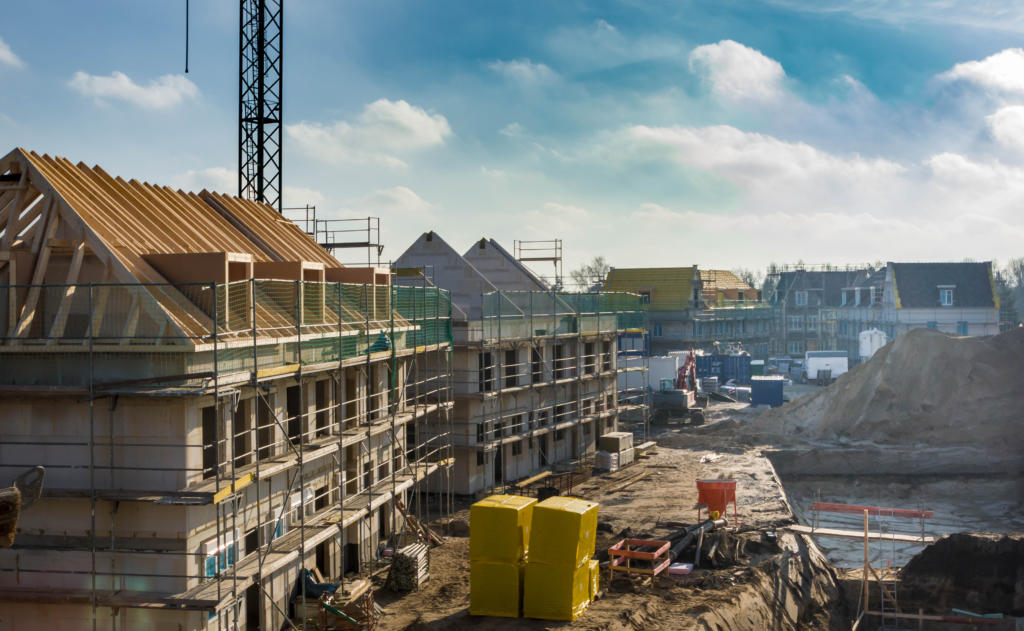
The advice given in this article is correct as of 26th March 2020. The situation with Coronavirus is developing rapidly, so please do check our COVID-19 Insights Hub for the latest updates.
The current Coronavirus pandemic is causing issues in every area of business including construction projects.
Current Government advice is that construction sites can stay open and work can continue as long as operatives respect the two metre rule. However, with the way that things have been developing, this could change at any moment. This advice is based on the position as at 26 March 2020.
The advice contained in this note relates specifically to JCT contracts. The wording of other contracts may be different.
Extensions of time
The JCT contracts generally say that a contractor is entitled to claim an extension of time if the completion date for work is delayed by any of the following events:
- A change in the law – if the Government introduces legislation that forces construction sites to close or in some other way causes a delay then a contractor will be entitled to an extension of time. At present the Government has issued guidance only so this provision does not yet apply.
- A “force majeure” event – there is no definition in JCT of what force majeure means but it is likely to include unavoidable delays that arise as a result of Coronavirus. For the avoidance of doubt, a party will only be able to rely on force majeure if the JCT contains an express force majeure clause. Whilst the pandemic is likely to have some impact on the progress of work, a contractor is required to use “best endeavours” to avoid any delay. Therefore, if the contractor seeks to rely on the fact that some of their workers are in self-isolation as an excuse for delay, this may not be enough. In that situation the contractor would need to show that they could not procure suitable alternative labour from elsewhere, even if that costs them more money. Similarly, a lack of materials from their usual supplier will not entitle the contractor to an extension of time if the materials can be sourced elsewhere at a higher cost. The contractor cannot therefore sit back and use the situation as an excuse for delay. They will have to show that they did everything they could (even if that results in higher costs) to avoid the delay.
Claims for additional loss and expense
A contractor can claim for additional loss and expense if they are held up as a result of a Relevant Matter. Relevant matters are described in the contract and include delays caused by the employer.
Neither a change in law nor force majeure are relevant Matters. So whilst a contractor can claim additional time for these types of events, they cannot claim any additional money.
If the contractor is instructed by the employer to postpone work then this will be a relevant matter and will entitle the contractor to claim loss and expense for the period of the postponement.
Termination of the contract
If works are suspended as a result of force majeure or a change in the law for longer than the period stated in the contract (the default is two months) then either party can give seven days notice to terminate the contract. If the contract is terminated then the contractor is entitled to be paid for work done up to that date.
Health and safety
Employers may be concerned about the health and wellbeing of staff or customers on a site where work is being carried out. However, if an employer suspends work or closes a site, they run the risk that the contractor can claim the losses that they suffer as a result of the delay.
Contractors must comply with health and safety requirements on site and, where the minimum safety requirements are compromised as a result of the requirement to keep two metres apart or because of staff absences, sites may need to be closed or work suspended. The problem for a contractor in this instance is that they will not automatically be entitled to an extension of time for any delay.
Employers and contractors are left to balance the safety and wellbeing of their staff, customers and workforce with the possibility of financial penalties if work is suspended.
Summary
All parties to construction contracts need to consider their position carefully in the current situation. Everyone (employers and contractors) has a duty to protect the health and welfare of staff, customers and the workforce. However, a decision to suspend work or close a site could have financial implications.
If the Government changes its advice and enacts legislation that requires work on sites to cease then the position will be clearer. This raises the new prospect of either party being able to terminate the contract if work remains postponed for more than two months (or such other period stated in the contract). Until that happens, parties would be well advised to keep the channels of communication open and to consider carefully the implications of any action that they decide to take to suspend work or close sites.
